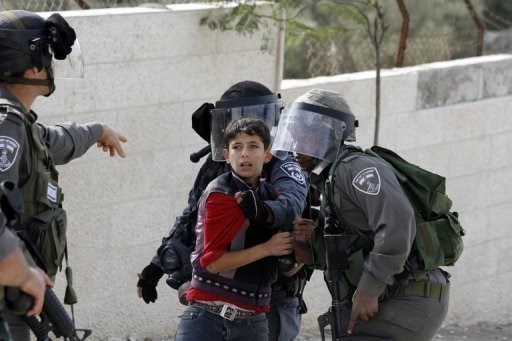Israel moves to keep interrogations from being filmed

BETHLEHEM – Israel’s Public Security Ministry proposed its latest bill to prevent “security” interrogations from being videotaped, for “fear the footage could reach terror groups that would learn Israeli interrogation techniques,” Israeli media said Friday.Ma’an – June 24, 2016
According to the Shin Bet, Israel’s internal security service, there is a “fear” that those being interrogated would refuse to reveal information in the event the video could possibly reach the groups they had informed against, said Israeli newspaper Haaretz.
In 2003 a law came into effect that required Israeli police to document almost all its interrogations, both visually and aurally.
Since then, the Knesset Constitution, Law and Justice Committee has consistently approved an “exemption” for security interrogations, which Israeli Deputy Attorney General Raz Nazri reiterated “stems from security considerations.”
In 2015, the committee agreed to extend the exemption for a year and a half, but rejected a proposed exemption of five years.
Israel has consistently been criticized by international rights groups for its interrogation practices, specifically towards Palestinian children.
Some 700 Palestinian children per year are arrested and face “ill-treatment” by Israeli forces, according to a 2015 report by Child Rights International Network (CRIN).
“Arrested children are commonly taken into custody by heavily armed soldiers, blindfolded with their wrists tied behind their backs before being transported to an interrogation centre,” the CRIN report said.
“Children questioned about their experience frequently report verbal and physical abuse during the arrest.”
According to research conducted by Defense for Children International – Palestine cited by the report, some 56 percent of children report having experienced “coercive” interrogation techniques during their time in Israeli custody.
Some 42 percent say they signed documents in Hebrew, despite the fact that most Palestinian children do not speak or understand the language.
Additionally, 22 percent of detained children say they underwent up to 24 hours of solitary confinement, in violation of international standards.
Some Palestinian teens reported that they were beaten to the point of their bones being fractured while being held in Israeli detention centers.
In a report released in February 2013, the UN children’s agency UNICEF criticized Israel for its treatment of arrested Palestinian children, saying their interrogation mixes “intimidation, threats and physical violence, with the clear purpose of forcing the child to confess.”
According to the latest numbers from prisoner rights group Addameer, there were a total of 414 child prisoners in Israeli prisons in May 2016, 104 of whom were under the age of 16.

No comments:
Post a Comment